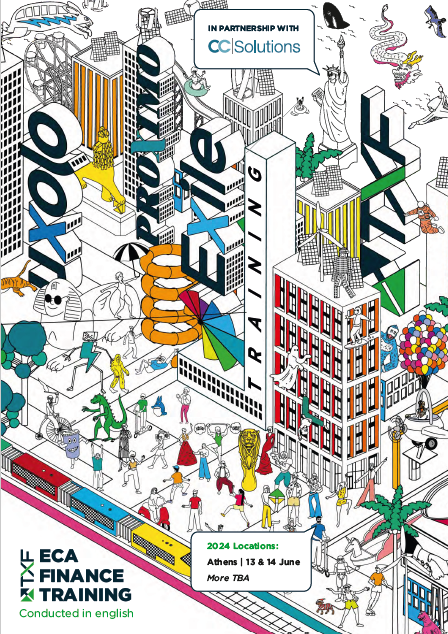TXF Webinar: Can partnerships power supply chain finance?

Announced in February, a new partnership between global electronic invoice financier Tungsten Network and supply chain finance (SCF) expert Orbian promises to benefit clients on both sides of the equation. In a TXF live webinar earlier this month, Tungsten Network Finance president Prabhat Vira and Orbian chairman Tom Dunn offered TXF readers a unique look under the bonnet, answering questions on how the tie-up will work from a practical perspective, what it means for existing customers and where it feeds into wider industry trends.
The partnership comes at a time of evolution in how buyers approach SCF, according to Dunn. While previously, corporates focused mostly on which provider to pick, now they take a deeper, more strategic look at how to extract maximum value from their use of the product.
Dunn believes the partnership could herald the start of wider industry consolidation, with the number of players consolidating around a smaller number of delivery mechanisms for liquidity into the system.
Orbian spent a number of years exploring opportunities to forge just such an agreement, but “because we’ve taken this step very, very seriously,” it took a long time to settle on the right partner, he said.
Convergence between procurement, payables and treasury
It will also ride on another trend underway at mid-sized to large corporates. This is for CFOs to demand more convergence between the procurement, payables and treasury functions under them, and for the dual objectives of efficiency through digital automation and working capital optimisation to come together seamlessly across all three, said Vira.
“If you look at our partnership, we are actually bringing those three areas together, because we’re combining digital automation with working capital.”
When the two sides finally did decide to team up, a “key driver” was their recognition of the benefits of bringing together Tungsten Network’s 230,000-strong client reach and Orbian’s financing capabilities, Dunn said.
“This is not to introduce e-invoicing to existing clients of Orbian, many of whom already have that,” he added. “This is about providing a supply chain finance product capability across Tungsten’s e-invoicing platform.”
The electronic invoices already flowing through Tungsten’s platform connect clients with anything from 100 to 10,000 of their suppliers, noted Vira. These customers and their supply chains are therefore effectively already on the platform.
In introducing SCF to them, Tungsten reminds them that they use its platform because they recognised the efficiency gains possible from replacing a manual, paper-based invoicing process to a seamless, straight-through digital process. Now, through its partnership with Orbian, they have the opportunity to also meet working capital strategic objectives.
The almost unanimous answer from clients has been that this is “absolutely” something they would like to explore, Vira said.
From this point, with the help of advisory from Orbian, the conversation moves onto how SCF might help clients meet their strategic objectives – whether by infusing liquidity into SMEs to make their supply chain more robust or by extending their payables and improving their balance sheet.
“Fairly advanced” conversations in this direction are already underway with a number of clients, Vira said. He stressed however that customers remain “in the driver’s seat”, with the Orbian partnership only affecting them if they mandate Tungsten to undertake an SCF transaction.
The tie-up also means Tungsten can target some of the very large corporates who currently transact through its platform in the ‘supplier’ role but who also have extensive supply chains of their own, Vira added. “From a roadmap perspective, this partnership allows us to extend supply chain finance to a second segment of customers.”
Data analytics
Another advantage the partnership brings to clients on both side is the quantity and quality of data now available, as well as the analytics that derive from that, Vira added. Tungsten has a wealth of data related to invoices in a supply chain that can be converted into better analytics for suppliers in terms of what they have supplied, at what price and how quickly they were paid. From a buyer’s perspective, this data is equally valuable – helping medium to large companies understand their own supply chains better, he noted. From early discussions, that “is seen as very interesting to literally every single company we’ve spoken to.”
That said, data sharing only starts when a corporate mandates Tungsten for an invoice-linked SCF
Data analytics and customisable KYC are also useful for customers looking to inject more transparency into their supply chains and help them meet highly defined codes of conduct and sustainability criteria, according to Vira.
“It’s becoming an increasingly hot topic,” noted Dunn, adding that Orbian and Tungsten are currently planning a major initiative involving the mechanisms by which buyers can use their SCF programme at the margins to support their sustainability initiatives.
For example, the buyer could tell suppliers that if they meet certain sustainability goals – whether that be the elimination of child labour or the establishment of a carbon-neutral footprint – there will be reductions in the discount rates they pay or enhancements to the services they receive through the SCF programme, he explains.
Multi-source financing
The partnership will enable Tungsten clients to benefit from multi-source financing – if they choose to. How it currently works at Orbian is that when invoice finance is requested, Orbian buys the receivable and securitises it as a note that is then sold to investors. However, it does not bundle receivables from different buyers – every buyer programme is funded separately.
Tungsten clients will have “access to the full panoply” of financing sources that Orbian’s clients enjoy, Dunn said, adding that one of the key advantages Orbian offers buyers and their supply chains is the ability to arrange financing with new sources of liquidity from the banking, corporate or institutional investor sectors. They also have the option of having one or more of their established relationship banks finance the programme through Orbian’s note issuance programme.
This offers huge advantages in terms of not requiring banks to be tied individually to any particular suppliers, while at the same time allowing the buyer to have control over their exposure and spend with individual banks, he said.
And while for smaller programmes, it may make sense for a buyer to stick with their house bank, the multi-funding model offers advantages for any buyer that wants to ensure there is continuous price competition, that suppliers from all around the world can join and that suppliers are not being cross-marketed other banking services at the expense of the buyer’s credit rating, Dunn added.
Simpler onboarding
For existing clients, the system links will be seamless and invisible, with the “point of entry” remaining exactly the same as before, he said.
From a practical perspective, the partnership should also allow for a simpler onboarding process – alleviating what can be a common pain point for corporates with SCF.
Corporates are looking for ease of use, simplicity and short time to market, said Vira. And with 230,000 suppliers on its platform, simple onboarding is an area where Tungsten excels. That said, onboarding and know your customer (KYC) processes will be undertaken by either Tungsten or Orbian on a case-by-case basis, depending on their specific requirements – but only once – he noted.
Both sides take regulatory and compliance issues around supplier enrolment extremely seriously, added Dunn. “The shared philosophy at Tungsten about the primacy of appropriate and compliant supplier enrolment was one of the absolute requirements for us as we’ve formulated the partnership agreement,” he said. “So I see this as being a very natural flow of what we do into what Tungsten has also been doing.”




